
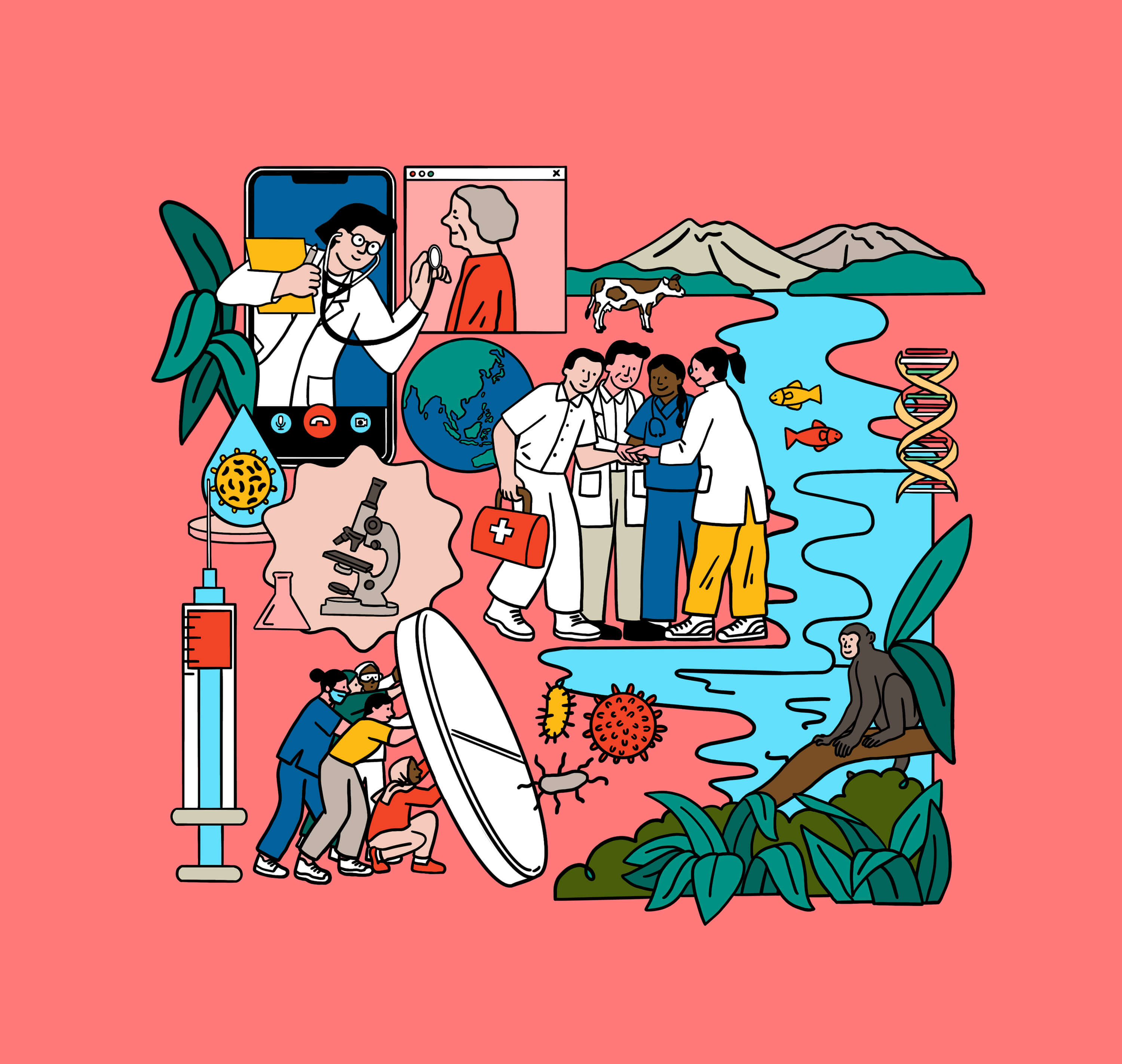



Significant changes are underway in the world of work. AI, digital technologies, and the climate transition are reshaping the work landscape, transforming jobs, careers, and whole industries. In this article, we explore the latest trends from data on the LinkedIn platform and their impact on the region’s workforce.
The article draws on insights from LinkedIn’s Economic Graph, a digital representation of the world. It consists of over 1 billion global members on the LinkedIn platform, 67 million companies, 133,000 schools, and 41,000 skills. There are over 277 million members on LinkedIn in Asia Pacific, of which more than 60 million are in the ASEAN region.
Skills needed for jobs are changing
Through LinkedIn’s data and insights, we have seen the real-time, granular effects of the labour market and economy writ large. Our data shows that the accelerated pace of digitisation and the current trend towards hybrid work have fundamentally changed the labour market and socio-economic landscape. In fact, skills needed for any given job globally have changed by over 25 per cent since 2015. This means that the skill set necessary for a particular job is changing rapidly, even for workers who have not switched jobs. With new AI tools accelerating the pace and scale of change, we expect an even faster rate of job transformation—by up to 65 per cent total change by 2030.
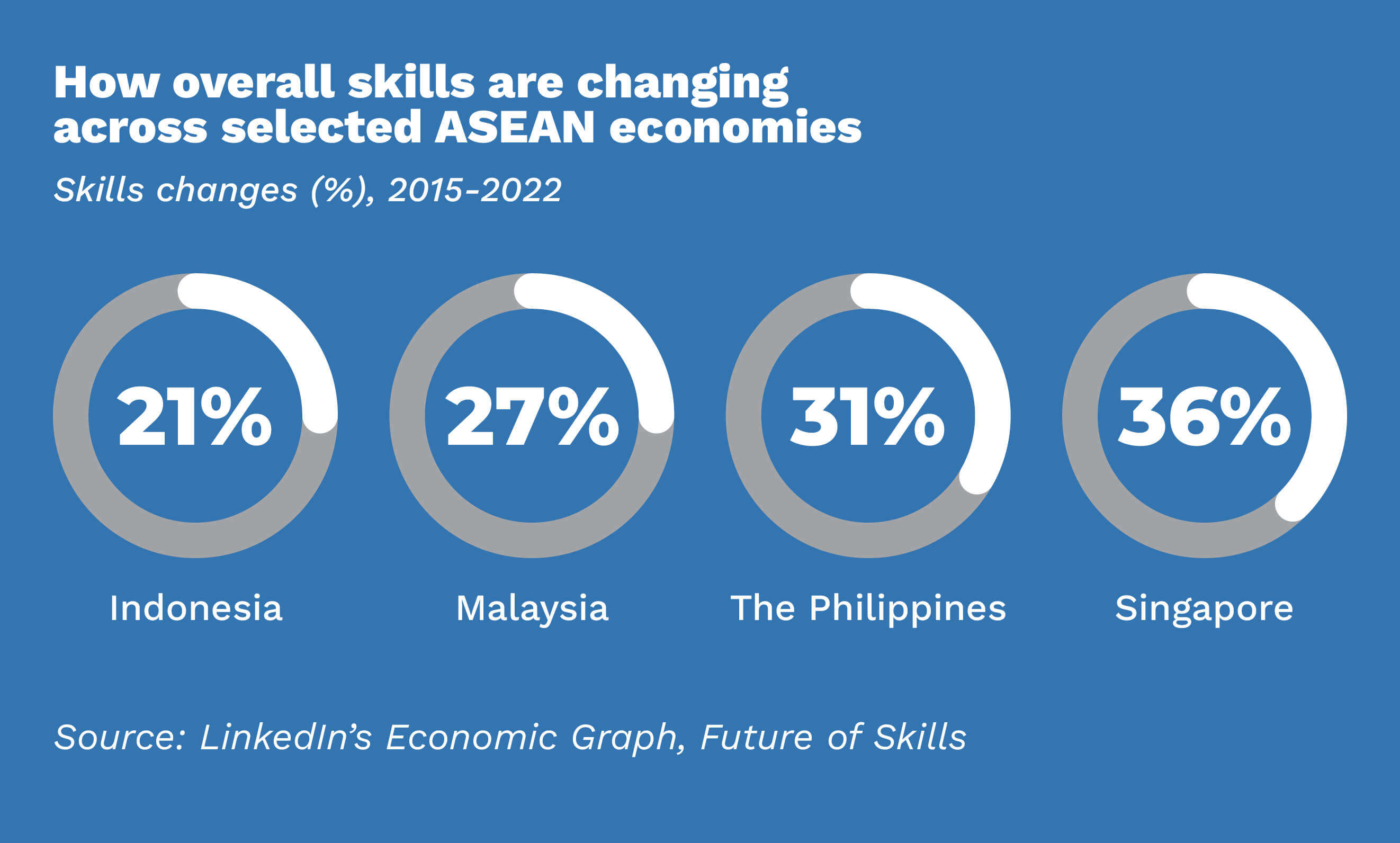
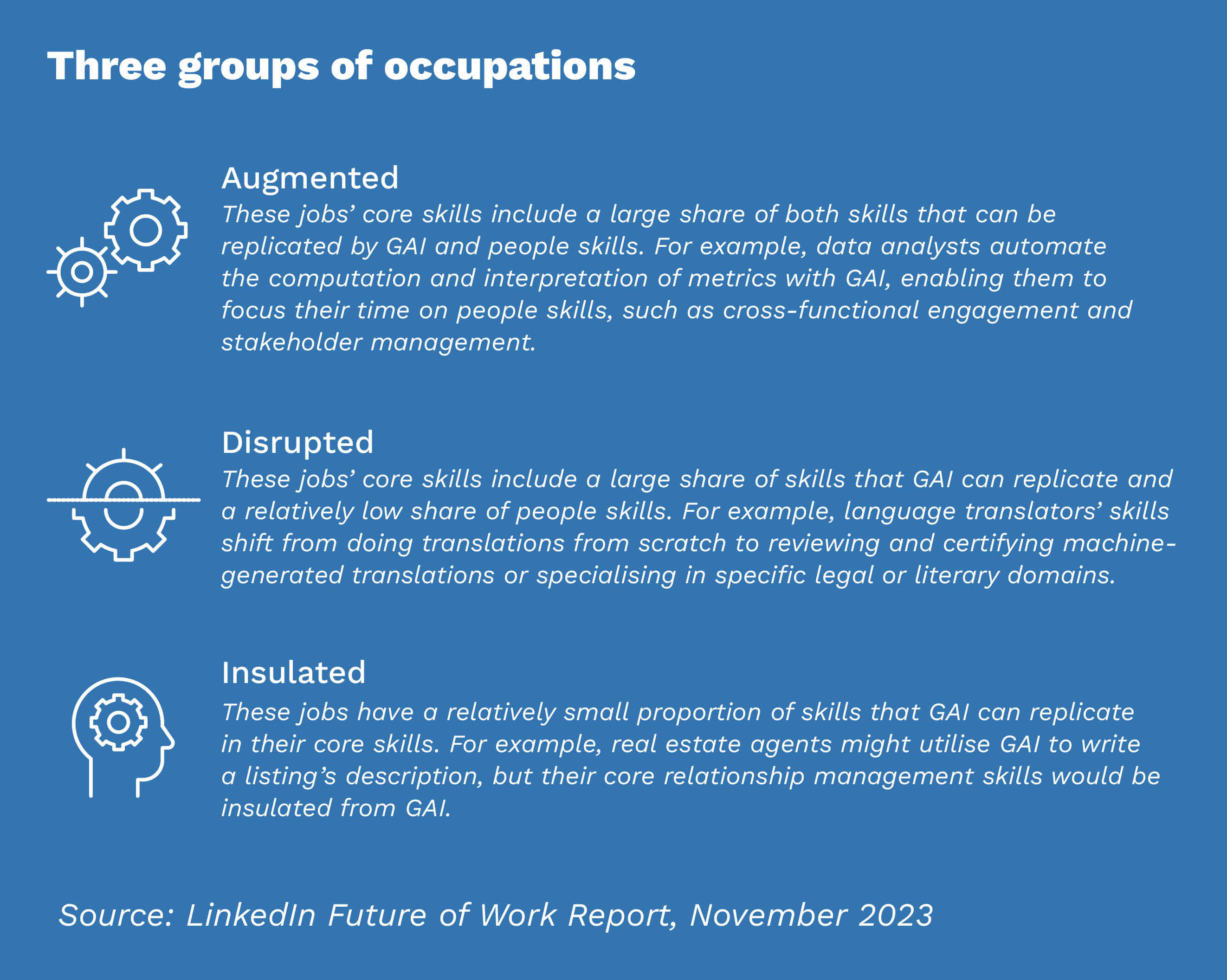
The impact of generative AI extends beyond the tech industry
While it may be premature to know the net impact of Generative AI (GAI) on the workforce, we anticipate that this technology will change essential skills across roles and industries. In our analysis, we find that most jobs require skills that Generative AI technologies can perform, but not every job will be affected the same way. We developed a conceptual framework to explain how skills—and, therefore, jobs and industries—can be impacted by Generative AI.
In Indonesia, for example, the share of LinkedIn members (25 million) with the most exposure to disruptions from AI work in the retail, tech, wholesale and financial services, and professional services industries.
AI and GAI-powered products are expected to transform many industries. The widespread adoption of GAI products across industries also creates the potential for greater job mobility among professionals across a wide array of industries. In fact, workers who embrace AI-literacy will find that their knowledge and skills will become more transferable, accelerating the ongoing trend of workers pivoting roles in response to job market demands.
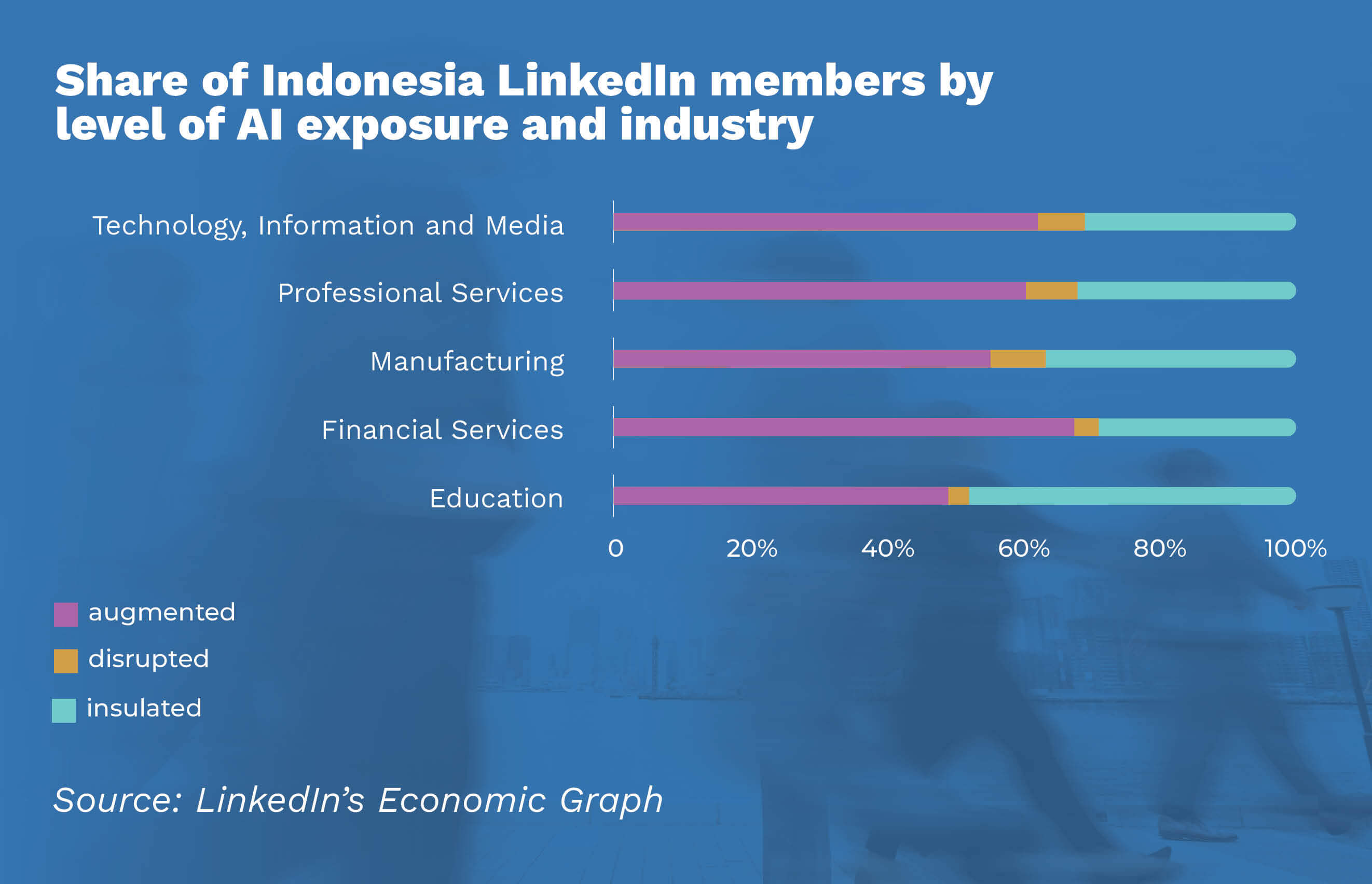
Climate transition will need more green talent
Beyond digital technologies, we expect the world of work to further evolve as a result of global efforts to green the economy. However, both supply and demand of green jobs and talent are not growing at the pace we need to meet our climate targets. Around the world, only one in eight workers have one or more green skills. Between February 2022 and February 2023, LinkedIn global job postings that require at least one green skill have grown by a median of 15.2 per cent.
As the ASEAN region continues to meet the challenges of climate-related vulnerabilities, it is important to develop a talent pool of green skills and talent. According to a recent ASEAN Secretariat report, it is particularly important for women, who are disproportionately impacted by climate change. In LinkedIn’s 2023 Global Green Skills Report, we found that two-thirds of the global green talent pool (made up of workers with at least one green skill or one green job experience) is male. Nine in 10 women globally lack a single green skill.
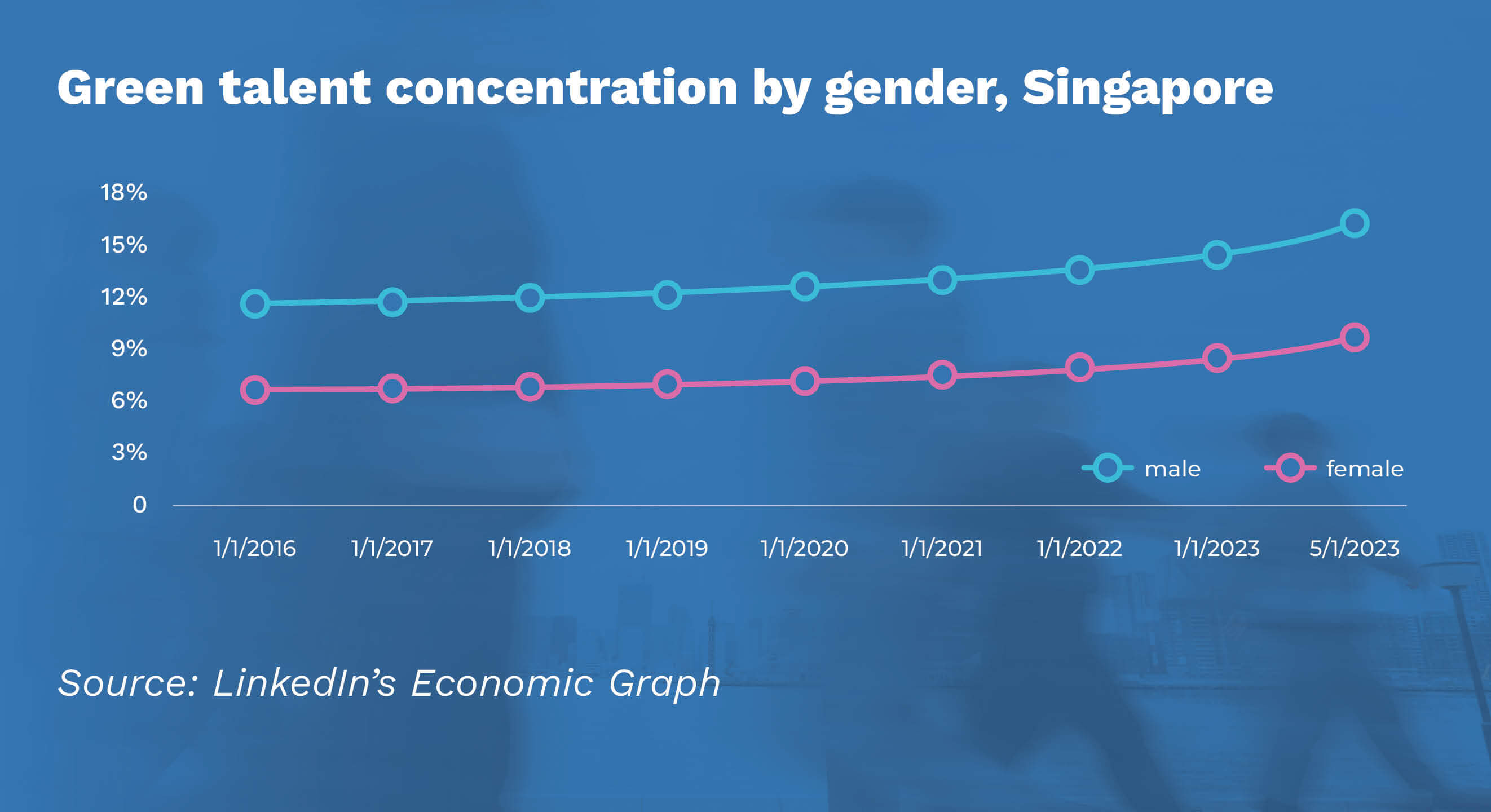
The way forward: A skills-first approach to transforming the ASEAN workforce
With the rapidly changing world of work and skills, ASEAN countries urgently need to rethink how we prepare the workforce for future jobs, and efficiently and equitably match talent to opportunity.
We have found that hiring based on skills—and not solely on a degree or job title—can strengthen the workforce, expand and diversify the talent pool for businesses, and expand access to jobs for workers. Globally, talent pipelines can increase by nearly 10 times when using a skills-first approach.
A skills-first approach means hiring talent based on skills instead of traditional signals such as educational qualifications and prior job experience. When skills needed for jobs are changing so rapidly, these traditional hiring methods may lead to businesses struggling to find talent and workers not being able to fulfil their economic potential. A skills-first approach to hiring presents an opportunity for the ASEAN workforce and business community.
The views and opinions expressed belong solely to the author and do not reflect the official policy or position of ASEAN.







